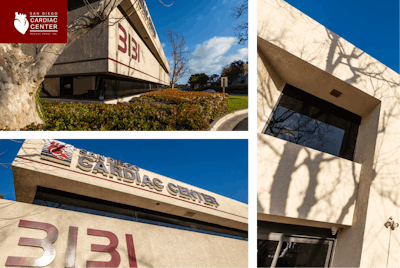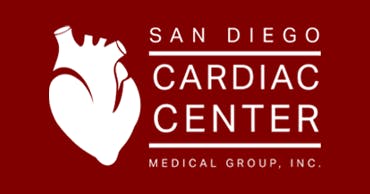Our specialists at San Diego Cardiac Center offer groundbreaking, innovative medical interventions for the non-surgical treatment of heart disease. Our advanced treatments can correct narrowed, blocked arteries and congenital heart defects. We can also provide stroke prevention devices
Peripheral Vascular Disease
Balloon Angioplasty
This procedure is also called a “Percutaneous Transluminal Coronary Angioplasty (PTCA)” and is a non-surgical procedure performed after a blocked or narrowed artery (due to deposits) has been identified in an angiogram. The procedure involves the insertion of a special catheter with a tiny balloon into a narrow heart artery. When the catheter reaches the blocked area, the balloon is inflated to flatten the deposits against the artery wall. As the artery is now wider, blood flow is improved.
Peripheral Angioplasty
When a blocked blood vessel is found outside the heart, a balloon angioplasty can be performed to open the blocked or narrowed blood vessel. A specialized catheter with a tiny balloon on the end is inserted into the blocked or narrowed vessel, flattening the deposits blocking blood flow against the vessel wall.
Stent Placement
A Stent is a small metal coil or slotted tube that is placed within a heart artery after an angiogram test has revealed a blockage or narrowed artery. The stent is designed to help support the arterial wall and push aside deposits. A catheter with a balloon is used to place a stent into an artery. When the balloon is inflated inside of the stent, the stent expands. The stent supports the arterial wall and aids in holding the artery open. The stent is a permanent implant that will remain in the artery.


